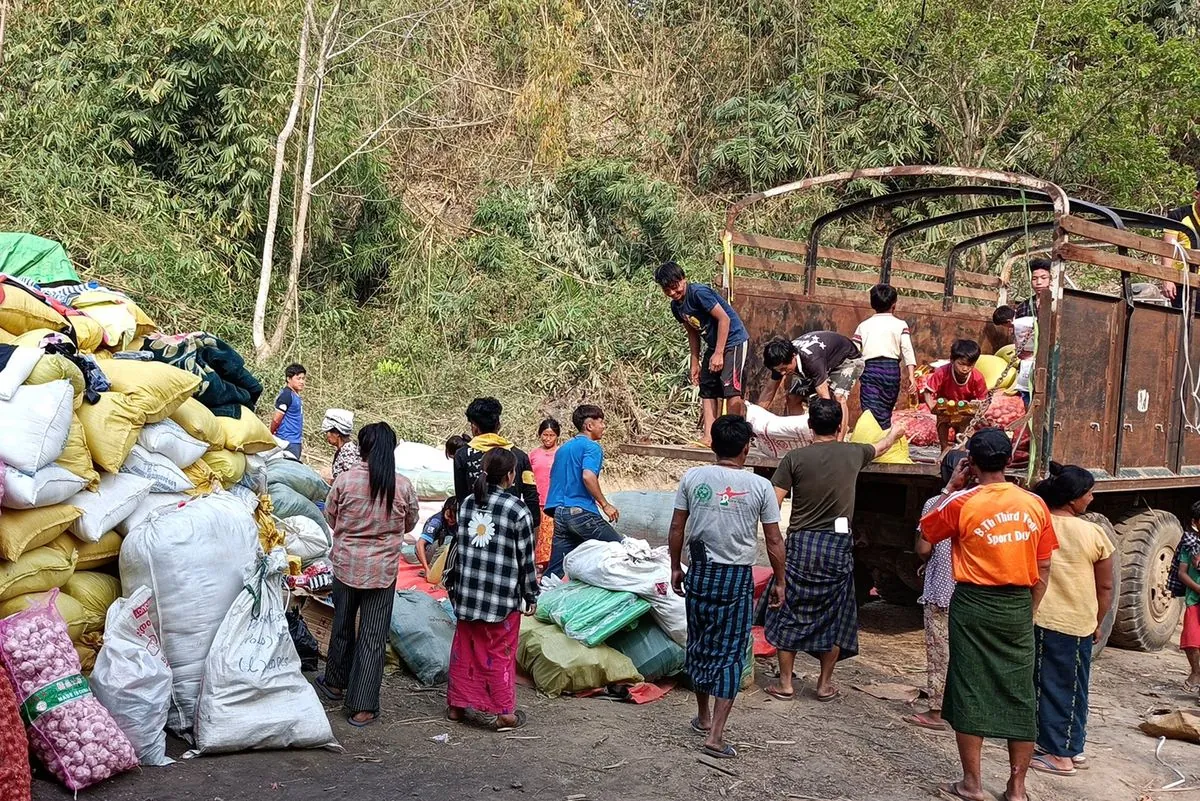The International Committee of the Red Cross (ICRC) is actively seeking ways to provide cross-border humanitarian assistance to Myanmar, a country grappling with a severe crisis. Approximately 18 million people, representing one-third of Myanmar's population, are in urgent need of aid.
Mirjana Spoljaric, the ICRC chief, recently concluded a visit to Myanmar, where she engaged in discussions with the country's ruling military junta. The talks centered on expanding the organization's capacity to deliver aid, with Spoljaric emphasizing that access remains the primary obstacle.
"There's a total absence in certain regions of medical services, I mean, a complete collapse. There's not even medicine coming in at the moment, and there's very little food available."
The humanitarian crisis in Myanmar has its roots in the February 2021 military coup, which ousted the elected government led by Aung San Suu Kyi. This event triggered widespread protests that evolved into an armed rebellion against the military regime. The ongoing conflict has left vast areas of the country in turmoil, leading to a collapse of essential services in many regions.
To address this dire situation, the ICRC is exploring potential aid routes through neighboring countries such as Bangladesh and Thailand. In March 2023, Thailand successfully delivered some aid to Myanmar as part of an initiative supported by ASEAN (Association of Southeast Asian Nations) to establish a humanitarian corridor.
The ICRC is also engaging with various armed groups opposing the military government, as well as with ASEAN member states. Spoljaric emphasized the importance of dialogue with all parties involved in the conflict to secure the necessary agreements for aid operations.
One potential route for aid delivery is through Bangladesh, which borders Myanmar's Rakhine state. This region has seen significant territorial gains by the Arakan Army rebel group, leading to a new exodus of Rohingya refugees into Bangladesh. The country already hosts over a million Rohingya refugees in sprawling camps, highlighting the ongoing humanitarian challenges in the region.
Myanmar's complex situation is further complicated by its rich ethnic diversity, with over 135 officially recognized ethnic groups. The country's economy, once promising due to abundant natural resources like jade, oil, and natural gas, has been severely impacted by sanctions and political instability.
As the ICRC continues its efforts to increase aid delivery, the organization faces the daunting task of navigating a landscape marked by conflict, limited access, and a healthcare system ranked among the world's worst according to the World Health Organization. The success of these humanitarian efforts could potentially pave the way for local ceasefire negotiations, offering a glimmer of hope in Myanmar's ongoing crisis.
